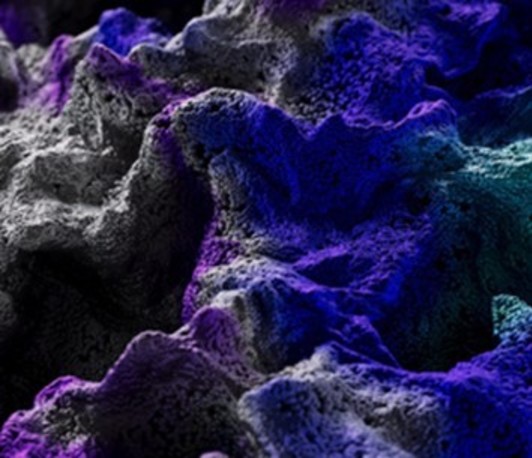Synthetic Realities, Real Violence: AI and Imaging Tech in Contemporary Conflicts
Research Seminar
- Public event without registration
- Beginn: 21.05.2024 11:00
- Ende: 21.05.2026 13:00
- Vortragende: Donatella Della Ratta, Lesia Vasylchenko
- Ort: Villino Stroganoff, Via Gregoriana 22, 00187 Rome and online (Vimeo)
- Kontakt: mara.freiberg@biblhertz.it

The research seminar will address the convergence of artificial intelligence, imaging technologies, and modern conflict. Discussing the impact of artificial intelligence on modern image production practices, Donatella Della Ratta and Lesia Vasylchenko will explore how the new, AI-driven, forms of representation, redefine the notion of reality itself, and how violence is embedded into this new synthetic reality.
1) „Synthetic Realism:
Exploring the Aesthetics and Politics of Generative AI in a Time of
Widespread Violence”, lecture by Donatella Della RattaThis presentation explores the profound impact of
synthetic images, generated by artificial intelligence (AI), on contemporary
violence dynamics. From target identification to tactical execution of military
strategies, AI technologies are reshaping the landscape of warfare. This talk
investigates not only the overtly violent applications of AI in today's
conflicts, such as The Gospel and Lavender, which are implicated in killing
civilians in Gaza; but also the broader implications of synthetic imagery in
contexts of conflict and political unrest. Emerging AI applications, which I
term 'imaginative' and 'world-making', offer alternative realities. They
introduce a new form of realism – 'synthetic realism' – where AI-generated
visuals, closely resembling reality and drawing their legitimacy upon
traditional ideas of representation, could pave the way for novel and more
sophisticated forms and formats of violence enactment.
Donatella Della Ratta is a media
ethnographer, writer, performer, and curator specializing in networked media,
with a focus on the Arab world. She holds a PhD from the University of
Copenhagen and is a former Affiliate of the Berkman Klein Center for Internet
and Society at Harvard University. From 2007 until 2013 she managed the Arabic
speaking community for the international organization Creative Commons. In 2012
she co-founded SyriaUntold.com, recipient of the Digital Communities award at
Ars Electronica 2014.
She has published a wide range of books and essays on
networked technologies, among which Shooting a Revolution: Visual Media and
Warfare in Syria (Pluto Press, 2018); and co-edited, among others, the
collective volume The Aesthetics and Politics of the Online Self: A Savage Journey
Into the Heart of Digital Cultures (Palgrave McMillan, 2021).
She is Associate Professor of Communication and Media
Studies at John Cabot University, Rome ddellaratta@johncabot.edu
2) „Chronopolitics Of
Photographic Image: Remote Sensing and Near Real Time?“, artist talk by Lesia
Vasylchenko
Satellite constellations can extract data from planetary
surfaces not through the act of "seeing" (through an optical lens)
but through "sensing" the time it takes for the signal to reach the
location and return. Images obtained with remote sensing do not portray a
place, but a time. Instead of pixels, they consist of the juxtaposition of
technological durations. Combining satellite data with machine learning,
one can generate, a so-called Next-Frame prediction, a photographic
documentation of a moment that hasn't happened yet.
How does this technological development redefine the
notion of a photographic image today? How is our history being documented by
rapidly expanding space observation infrastructures, which instead of remotely
seeing planetary surfaces, remotely sensing it? How are they used to shape
politics, societies, and the human experience of time?
Taking the vantage point of the role of SAR
(Synthetic-Aperture Radar) satellite data in the current war in Ukraine, the
talk will focus on the role of images and media technologies in the weaponization
of time; how they construct chronodiverse environments and rapidly forming
surveillance infrastructures both on and around our planet.
Lesia Vasylchenko (born in Kyiv, Ukraine based in Oslo, Norway) works across a range of media including video, photography and installation. In her research-based practice Vasylchenko is looking into encounters between visual cultures, media technologies and politics of time. She is a co-curator of the artist-run gallery space Podium and a founder of STRUKTURA. Time, a cross-disciplinary initiative for research and practice within the framework of visual arts, media archaeology, literature, and philosophy. She holds a degree in Journalism from the Taras Shevchenko National University of Kyiv and Fine Arts from Oslo National Academy of the Arts. Vasylchenko have been recently shown among others at the MUNCH Museumm and Henie Onstad Art Center; her recent exhibition "Chronosphere" is currently on a display at the Kunsthall Oslo. Vasylchenko´s work is part of the collection of Museum of Contemporary Art KIASMA / Finnish National Gallery in Helsinki, Finland.
Please follow the event also online on our VIMEO CHANNEL with this link: https://vimeo.com/event/4257163
Scientific Organization: Lesia Kulchynska